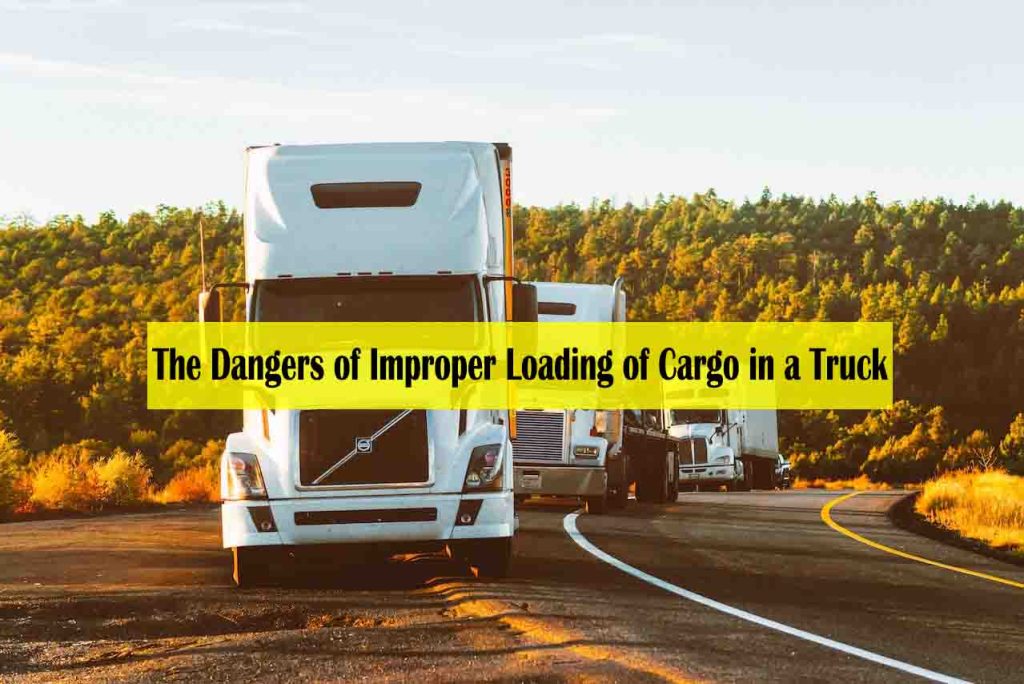Improper loading of cargo in a truck refers to the failure to safely and securely load cargo onto a truck in accordance with relevant regulations and safety standards, which can lead to accidents, damage to the truck or cargo, spillage or shift of cargo during transportation, and environmental hazards. All of this can be the result of overloading the truck, an uneven distribution of weight, a failure to secure the cargo properly, and other errors that can compromise the truck’s safety and the safety of those on the road.
Proper cargo loading is critical to ensure the safety of both the driver and other motorists on the road, and it helps prevent these risks, ensures compliance with legal requirements, and protects trucking companies’ reputations and financial stability. If you or a loved one has been injured in a truck accident due to improper cargo loading, you need to hire the best cargo truck accident attorneys to get compensation.
Causes of Improper Loading of Cargo in a Truck
Here are the common causes of improper loading;
Poor planning: This can include an inadequate assessment of the weight and size of the cargo, ranging from the type of vehicle needed for transport to a lack of consideration for the route and road conditions, and failure to identify potential hazards or obstacles that may affect the safe transportation of the cargo.
Inadequate loading equipment: This can include loading ramps, lift gates, or securing equipment not designed to handle the weight or size of the loaded cargo, which can lead to an increased risk of accidents, damage to the cargo or the truck, and injuries to the loading personnel.
Insufficient time for loading and securing the cargo: When there is insufficient time, loading personnel may rush the process and fail to secure the cargo properly. This can lead to accidents, spillage or shift of cargo during transportation, and other hazards.
Inexperienced loading personnel: Loading personnel who are not properly trained may not know how to safely and securely load the cargo and may not be aware of relevant regulations and safety standards. This can lead to accidents, damage to the truck or cargo, and other risks.
Dangers of Improper Loading of Cargo in a Truck
A. Accidents and crashes: If the cargo is not properly secured or distributed, it can shift or fall off the truck, causing the driver to lose control of the vehicle and collide with other vehicles or objects. This can result in serious injuries, property damage, and even fatalities.
B. Spillage or shift of cargo during transportation: If the cargo is not properly secured, it can move around in the truck, leading to an unbalanced load or even falling off the truck. This can pose a danger to other motorists on the road and can also result in damage to the cargo.
C. Damage to the truck or cargo: Improper loading can also result in damage to the truck or cargo. If the cargo is not properly secured, it can damage the truck or other items in the cargo. This can result in costly repairs or replacements, as well as delays in delivery.
D. Fines and legal consequences: If the trucking company violates relevant regulations and safety standards, it can face fines, penalties, and even loss of license. In addition, if an accident occurs as a result of improper loading, the trucking company may face legal liability for damages and injuries.
E. Environmental hazards: If the cargo is not properly secured, it can spill or leak during transportation, posing a danger to the environment and wildlife. This can also result in fines and legal consequences for the trucking company.
Conclusion
It is very important to load cargo properly, as it is critical for the safety of both the truck driver and other motorists on the road. Also, trucking companies need to prioritize safety and compliance with regulations and safety standards to prevent accidents and injuries. If an accident occurs due to improper loading, seeking the help of an experienced attorney can ensure that you receive the compensation you deserve. A skilled attorney can help you determine liability and pursue compensation for your injuries, medical bills, lost wages, and other damages incurred due to the accident.
